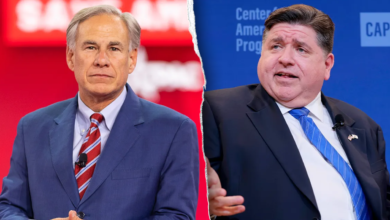Johnson stands firm on shutdown strategy as House GOP gets nervous
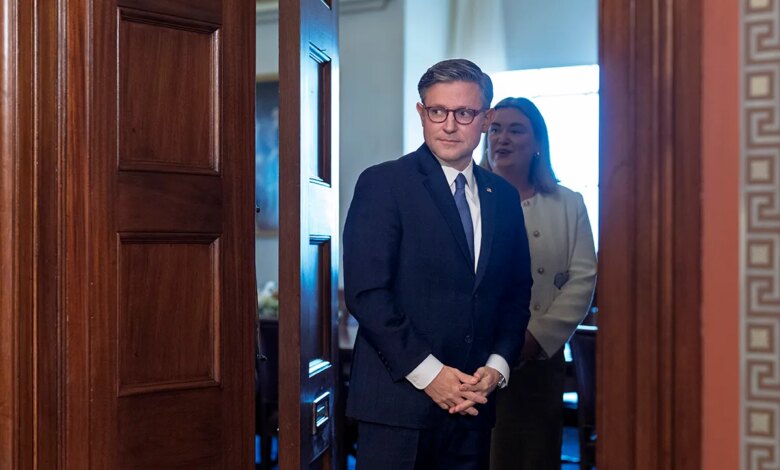
NEWYou can now listen to Fox News articles!
House Speaker Mike Johnson, R-La., appears to be standing firm on his strategy to pressure Senate Democrats into agreeing to end the government shutdown, he said in public and private comments Thursday.
But even as he and Senate Majority Leader John Thune, R-S.D., move forward with their plans, some Republican lawmakers in the House of Representatives are growing increasingly nervous about the potential fallout.
House Republicans held a private call Thursday in which Johnson updated them on the current state of affairs. And while GOP lawmakers were largely united behind their leader, Fox News Digital was told, several expressed concerns about the optics coming from the House and Senate as the shutdown is about to enter a tenth day.
Johnson previously canceled House votes this week to maintain national attention on Democrats’ resistance to the GOP plan to fund the government.
SENATE GOP RESISTS ‘NUCLEAR OPTION’ AS DEM Shutdown Deadlock Deepens
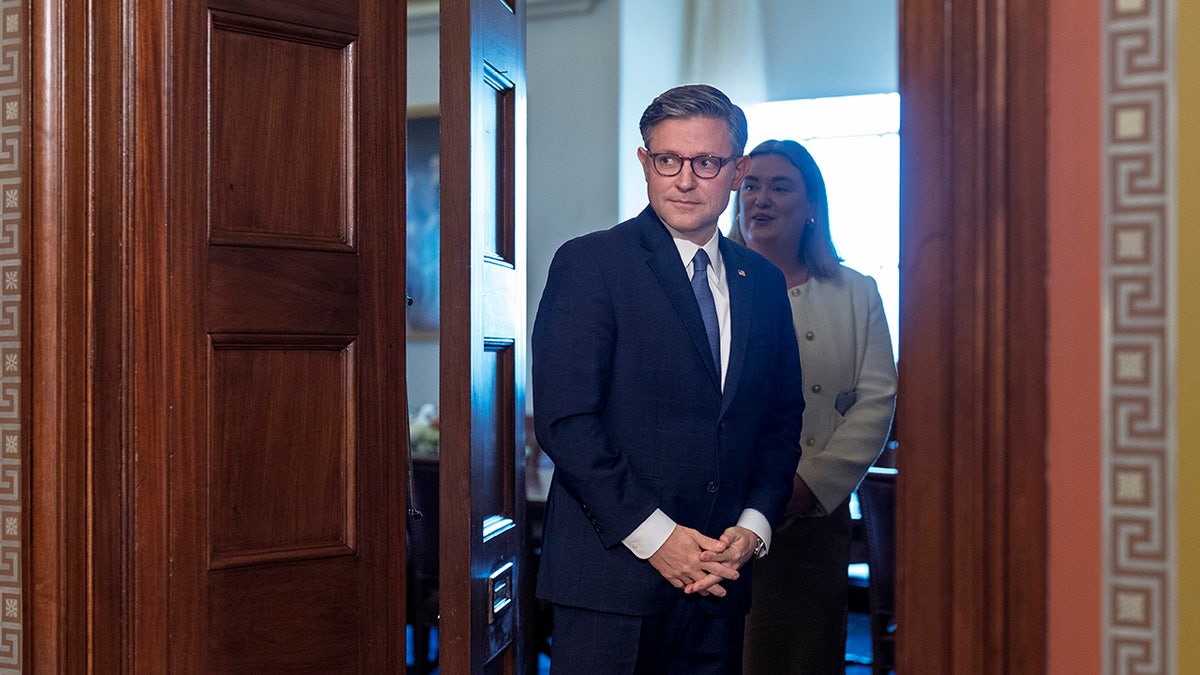
As lawmakers debate an extension of government funding, House Speaker Mike Johnson, R-La., awaits the arrival of Orthodox Christian Church leader Ecumenical Patriarch Bartholomew at the Capitol in Washington, Sept. 17, 2025. (J. Scott Applewhite/AP Photo)
The speaker told House Republicans he would give them 48 hours’ notice before the House’s next vote, but did not say when that would take place, Fox News Digital reported – after repeatedly stating publicly that whether they return would depend on Senate Democrats.
He said Wednesday on CNN’s “State of the Union,” “As soon as (Senate Minority Leader Chuck Schumer, D-N.Y.) decides to call it quits, we will bring everyone back here and resume the regular session immediately.”
But at least three House Republicans are advocating for the House to return next week, whether the shutdown is resolved or not, including two on Thursday’s call.
Reps. Jay Obernolte, R-Calif., and Julie Fedorchak, R-N.D., have both spoken in favor of returning next week, sources told Fox News Digital.
SENA DEMOCRATS DEFY WHITE HOUSE WARNINGS, AGAIN BLOCKING GOP BID TO REOPEN GOVERNMENT
Obernolte told Johnson that the House still has work to do beyond budget spending, adding, “None of this is done,” Fox News Digital was told.
“I think we’re going to get to a point where it’s going to be detrimental to continue to keep the House out of session. I think we’re at that point,” Obernolte told Fox News Digital.
Fedorchak said she believed House Republicans would be in a better strategic position if they were in Washington, sources said.
But Johnson reiterated his 48-hour commitment and said a break next week was not a “last call” but stressed that most House Republicans thought it was the right decision, sources said.
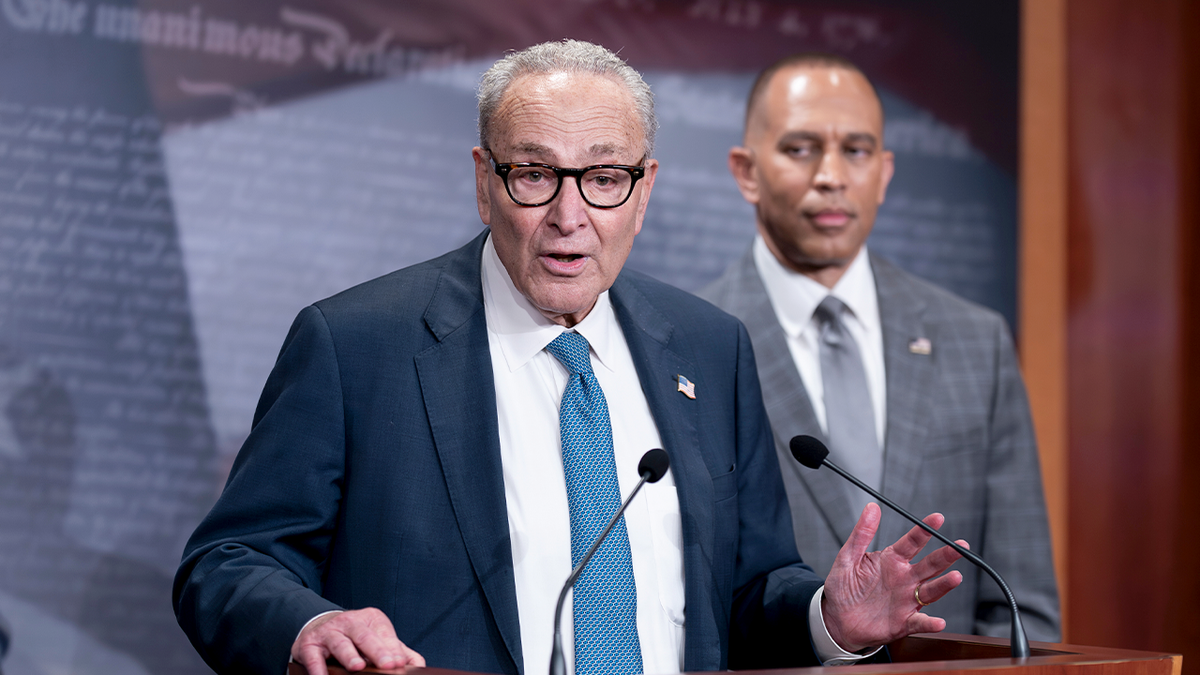
Senate Minority Leader Chuck Schumer, D-N.Y., and House Minority Leader Hakeem Jeffries, D-N.Y., provide updates to reporters following their face-to-face meeting with President Donald Trump and Republican leaders, at the Capitol in Washington, Sept. 29, 2025. (J. Scott Applewhite/AP Photo)
Meanwhile, Rep. Kevin Kiley, R-Calif., went public with his concerns Wednesday, writing on
During Thursday’s call, Johnson also indicated he would not hold a standalone vote on whether military personnel will continue to be paid during the shutdown, sources said.
The speaker argued it was a push by Democrats seeking political cover despite rejecting the Republican Party’s funding plan — which would keep the military paid and the entire government open until at least Nov. 21.
As it stands, active-duty military members are considered “essential” and must continue to work, but they could miss their next paycheck on Oct. 15 if the shutdown continues.
“The entire government needs to be reopened simultaneously,” Johnson said, sources told Fox News Digital.
But it also sparked some concerns from House lawmakers.
Rep. Jen Kiggans, R-Va., who is leading a bill to ensure troops are paid during a shutdown, wrote Wednesday won.”
Meanwhile, two other House Republicans — Reps. John Rutherford, R-Fla., and Tom Barrett, R-Mich. — spoke on Thursday’s call with lawmakers raising concerns that the Senate Republican Party is not completely bypassing Democrats to reopen the government.
Under current Senate rules, most bills must reach a 60-vote threshold to overcome a filibuster and allow debate.
But there have been several exceptions in modern times, triggered by the Senate majority leader, in which the rules were changed to lower the threshold to 51 votes for certain questions. Senate Republicans most recently used it earlier this year to overcome Democrats’ blockade of President Donald Trump’s nominees.
However, federal funding legislation still needs 60 votes, which Rutherford and Barrett said the Senate should consider changing.
Rutherford specifically warned that he feared Republicans could receive “bad messages” if the Senate did not use the so-called “nuclear option” to ensure the military was paid on time when it was used so recently for presidential candidates.
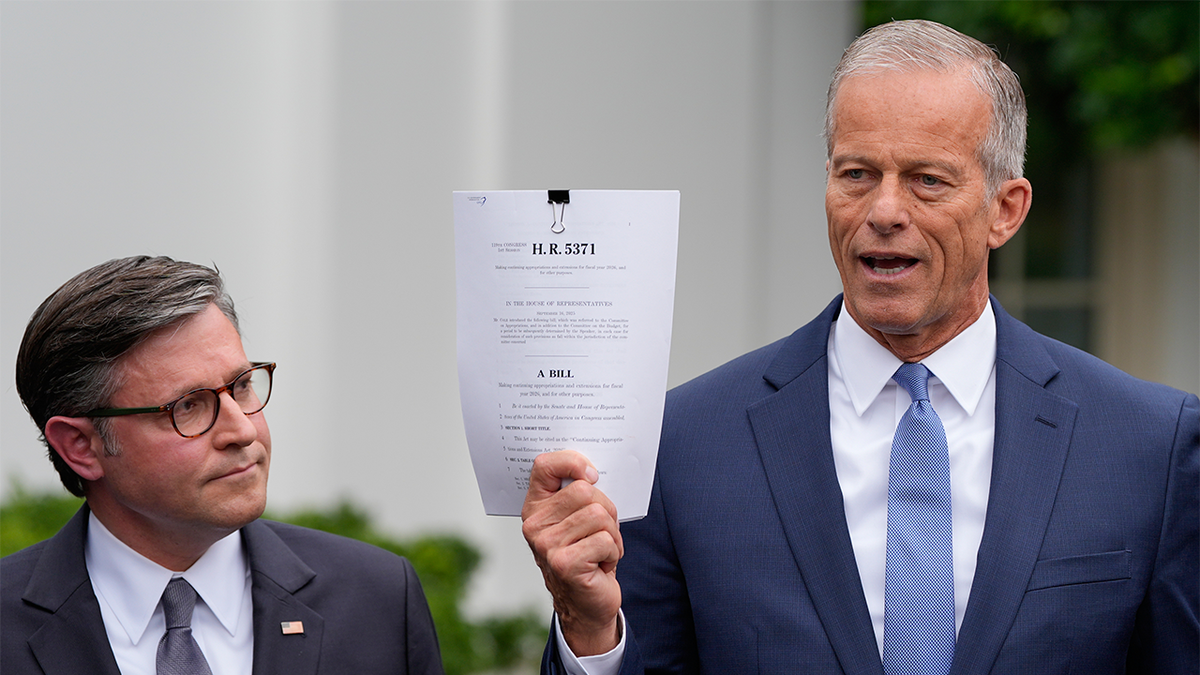
Senate Majority Leader John Thune, R-S.D., speaks with reporters outside the West Wing of the White House, September 29, 2025, in Washington, while House Speaker Mike Johnson of Los Angeles listens. (Alex Brandon/AP Photo)
Johnson, as leader of the House of Representatives, has no say in what the Senate does. But he answered a similar question during a question-and-answer session with Americans on C-SPAN Thursday morning.
“The filibuster is a tradition that people on both sides cherish, and the reason is if you blow it up and go nuclear on something like a CR, their argument is you would open Pandora’s box,” Johnson said.
CLICK HERE TO GET THE FOX NEWS APP
“What if the socialists took the Senate, and the democratic socialists were in charge, and they wanted to expand the government to take control of the means of production, and they had no guarantees there, and they could do it with a minimal majority next time?”
The government shutdown is expected to last for a tenth day on Friday after Senate Democrats rejected the Republican Party’s funding plan for a seventh time.
Republicans are pushing for a short-term extension of FY 2025 funding levels, called a continuing resolution (CR), to give lawmakers more time to reach an agreement on FY 2026 spending levels.
But Democrats, furious at being left out of the talks, are demanding serious concessions on health benefits in exchange for supporting a spending deal.
